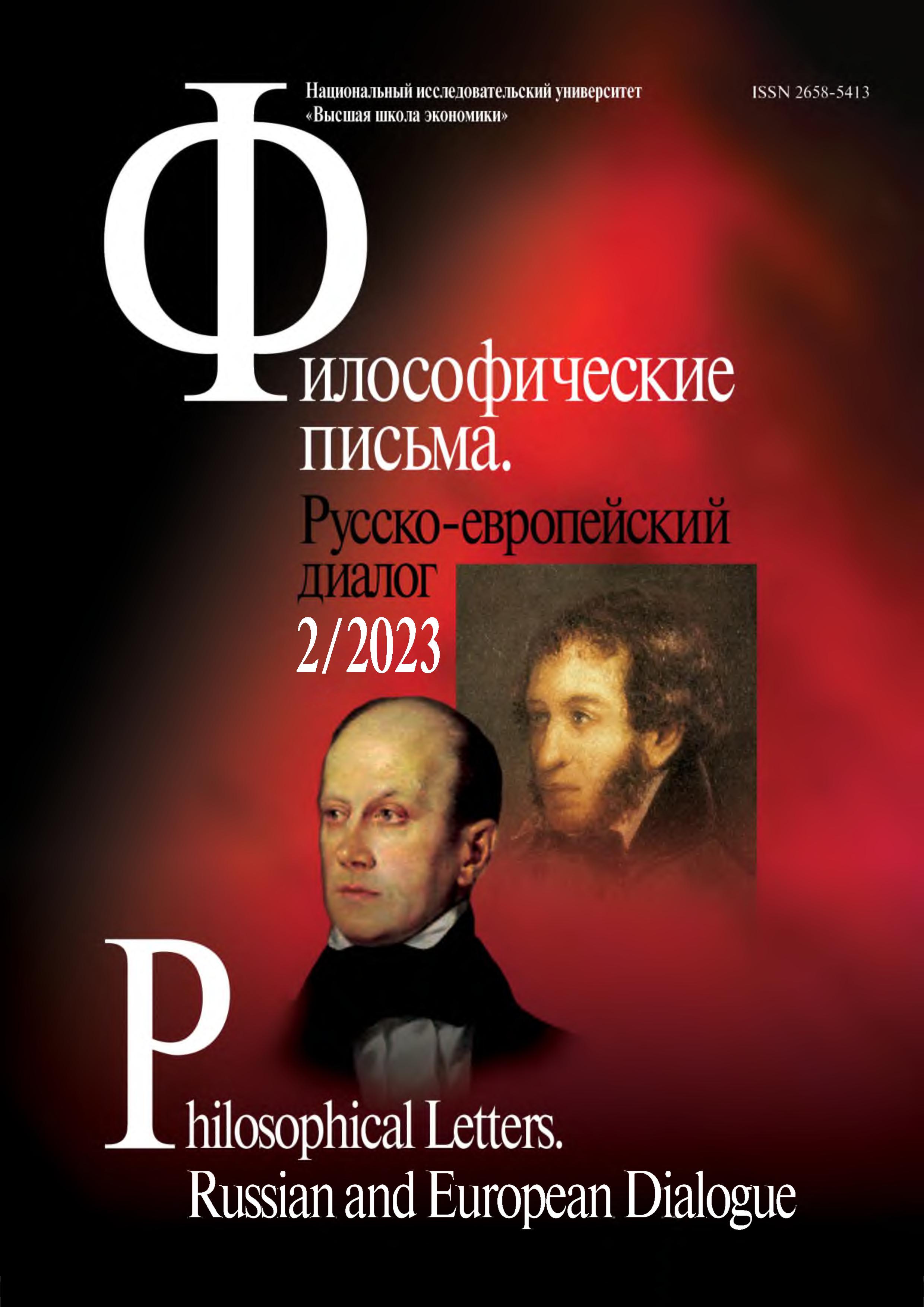'Russia is Called to an Immense Mental Task': the Evolution of the Concept of ‘Progress' in Russian Social Thought in the Late 1820s — 1830s
Abstract
The article examines the problem of the formation of the concept of “progress” in Russian social thought in the late 1820s and 1830s. During this period, the philosophy of F. W. Schelling. The starting point of reflections was no earlier reasoning by I. Kant, I. G. Herder and J. Condorcet about the endless progress of reason, morality and law, but Schelling's idea of history as an arbitrary creation of the individual. In Russian social thought of that time (P. Ya. Chaadaev, N. V. Stankev-ich, M. A. Bakunin, V. G. Belinsky), progress was seen as the movement of man and humanity towards the perfect Kingdom of Christ. Such a process was not considered linear, it involved breakouts and failures. Russia had a role to play in such efforts. After the European revolutionary events of 1830, Russian thinkers insisted on the development in Russia of an original intellectual and religious tradition, an educational system, and the preservation of autocracy as the main political guarantor of such a paradigm. By progress was understood the religious and intellectual improvement of the individual and society. The idea of a unified path of progress began to take shape under the influence of the philosophy of G. W. F. Hegel only at the turn of the 1830-1840s.

